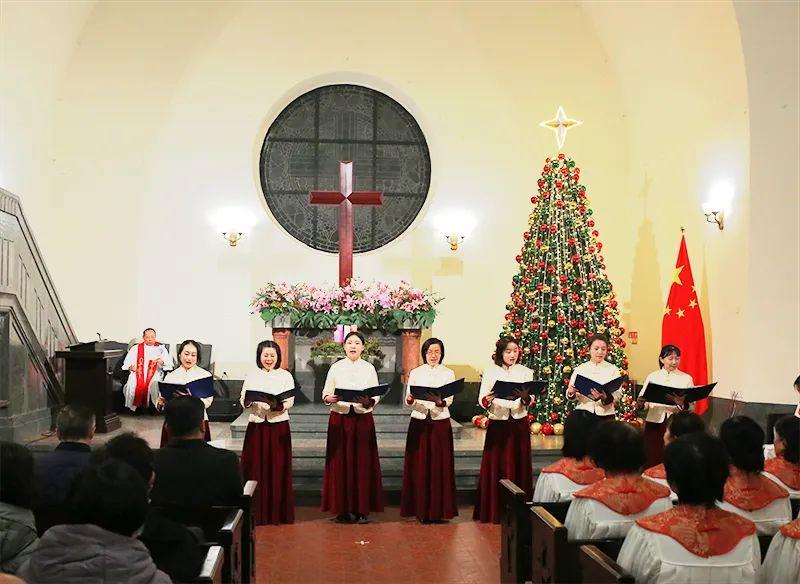Rev. Zhu, a full-time sacred music pastor in East China, offered some personal suggestions and references on the spiritual nurturing of choir members and the interpretation and expression of sacred music.
Previously, in the article "Interview With Pastor: Looking Forward to Sacred Music Ministry Taking Root in Chinese Churches," Zhu discussed the current situation and development of the sacred music ministry in China with the Gospel Times, an online Chinese Christian newspaper.
Root downward - Sacred music itself can feed the choir
Rev. Zhu has received professional sacred music training both domestically and abroad and has been engaged in sacred music education at seminaries for many years. He has now returned to the frontline, taking on roles of training for church choirs and local sacred music. In the process of leading the choir, Rev. Zhu particularly emphasized the spiritual cultivation of the choir. Drawing from his experience leading and nurturing the choir at his church, he suggested utilizing the rehearsal to nurture choir members’ spirits. In the process of rehearsing, one can find the power of spiritual edification within sacred music.
"Sacred music differs from secular music in its 'sacredness,' which is music imbued with holy inner emotions. The level of accuracy in pitch, technique, rhythm, and harmony cannot determine the sacred nature of sacred music. Ultimately, we must praise God with the soul, treating hymns as words of communication and prayer to God."
Rev. Zhu believes that the crux of all this still lies with the choir leader, who must not only be a technical guide but also 'a little pastor' who can provide spiritual guidance to the choir. The choir leader needs to understand and convey the deeper spiritual messages of comfort, praise, reverence, and alertness behind the hymns, beyond just the professional music theory and techniques.
Bearing fruit upward: — Contextualized creation of sacred music should emphasize the organic integration of traditional culture and theology
In 2017, at the "Sinicization of Hymns" seminar organized by CCC&TSPM, pastors and sacred music workers from across the country highlighted the lack of local hymn creation and theological depth. As one of the attendees that year, Rev. Zhu has his views on the localization and contextualized creation of sacred music in China.
Rev. Zhu stated that from the perspective of contextualization, the sacred music ministry of the Chinese church can start with the music and the textual content. These can be further divided into modes, phrasing, and theological implications. However, he believes that ultimately, the path of contextualized sacred music should explore a return to classic traditional Chinese culture in terms of text and melody while also adhering to orthodox theology.
"Sacred music is holy on one hand and needs to possess depth on the other. Hymns without profound theological and cultural connotations are difficult to become blessings for the times," Rev. Zhu emphasized.
In recent years, many local churches have explored the sinicization of sacred music by attempting to use local folk music or traditional Chinese instruments to present traditional hymns and sacred music. Regarding this, Rev. Zhu believes that since sacred music is church music, it is necessary to align with the church atmosphere and the Christian faith. It is also essential to grasp the principle of moderate application.
Reflecting on the journey of the contextualized creation of Chinese sacred music, Rev. Zhu acknowledged that it relies on a comprehensive and systematic theological education mechanism. This involves integrating sacred music with systematic theology, liturgy, hermeneutics, and Christian history.
- Translated by Abigail Wu












